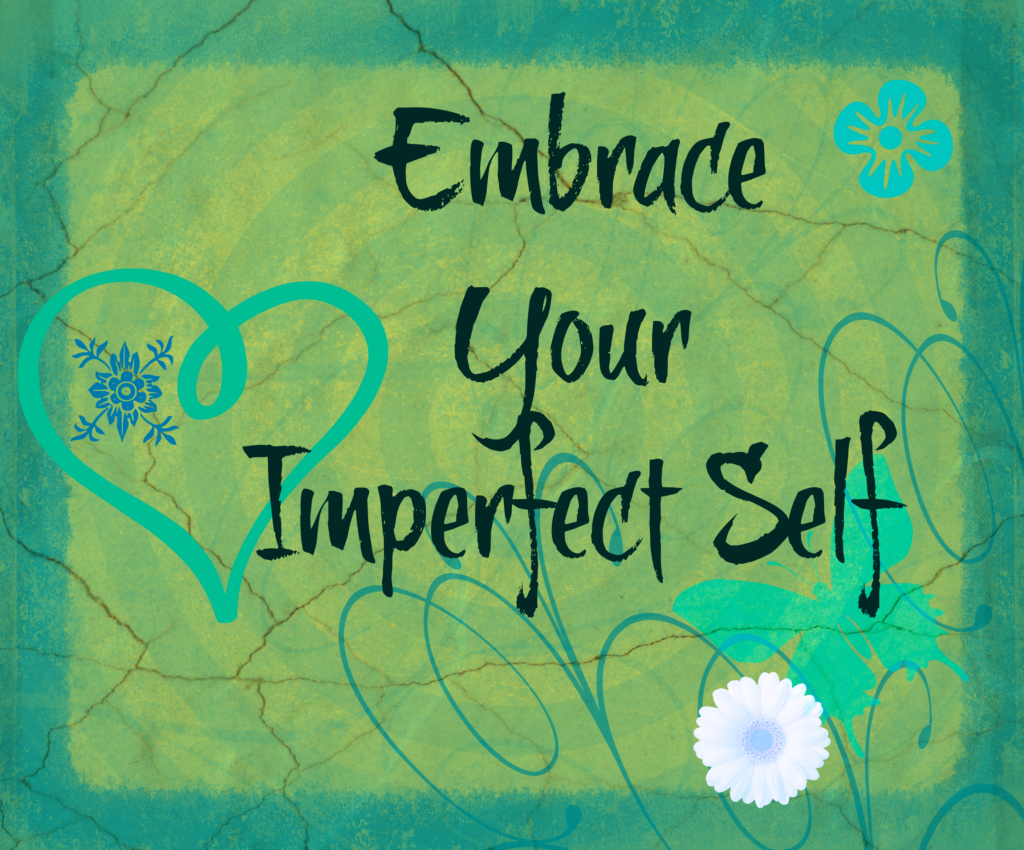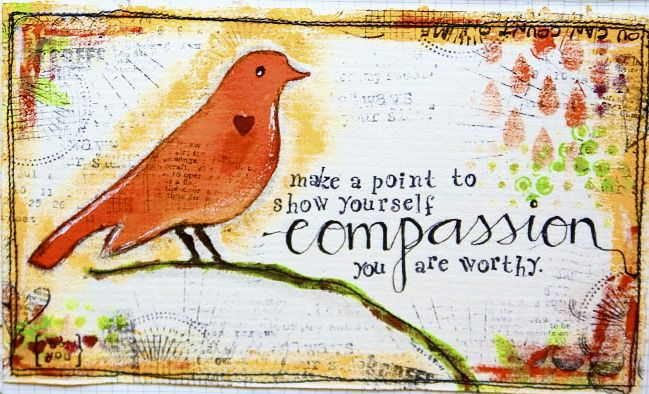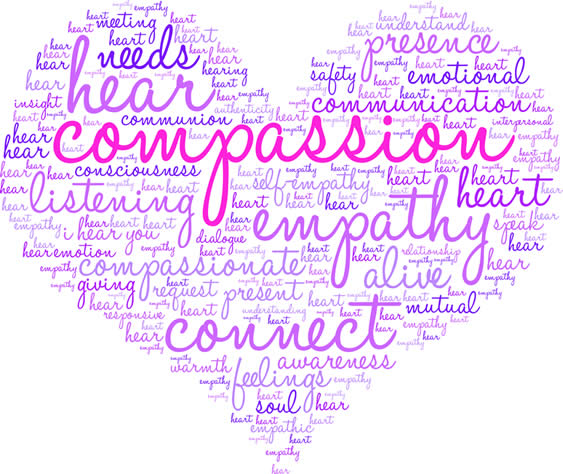SELF-COMPASSION Natasha Burke, May 13, 2020

Self-compassion, how many of you have self-compassion?
Have you been compassionate with others but when it comes to being compassionate with yourself you are not? Does this resonate with you?
I am one of those people. I have so much compassion for my friends, even strangers. I have recently realized how hard I have been on myself. I have negative chit-chat going on in my head. When I’m faced with challenges, I criticize myself. I certainly haven’t felt self- compassion when I have felt short of something that didn’t work out. I was afraid to make a mistake. I was afraid to say the wrong thing because I would be judged. I wanted things to be perfect and if I fell short of perfection, I would beat myself up. As I speak about this topic, it makes me sad that I have lived most of my life thinking and feeling this way. I am so grateful today I do have more compassion for myself. It’s an ongoing process.

I think sometimes it’s hard for us to remember to have the compassion that we know so well and share so freely with others. Taking a moment to allow ourselves to be the vulnerable ones can leave us room to share that compassion inward.
Have you ever felt like you had to do things perfectly or be perfect? Perfectionism is something I constantly work on. You see, we are all human, and humans make mistakes. I gave myself the gift of exploring how I would be more compassionate with myself. I explored the idea that if I make a mistake, so what. Acknowledge it and move on.
What if things are not perfect? So what, things are not perfect. I continue to learn that there will always be obstacles in life. I accept them, learn from them and move on. Is this simple? For me it is not. I have to continually be mindful when situations come up. It takes practice. Daily practice.

Self-compassion is the extension of kindness, care, warmth, and understanding (instead of criticism) toward oneself when faced with shortcomings, inadequacies, or failures. When you have self-compassion you care and nurture yourself. When you make mistakes, humiliate yourself, or don’t achieve a goal you were hoping to achieve don’t beat yourself up. It’s acknowledging that it’s okay to mess up. We are all human. We make mistakes. We don’t always achieve our goal. We just have to re-shift our thinking. The truth is we will make mistakes. We will humiliate ourselves. It’s okay.
Sometimes when we make mistakes its easy to feel guilt, shame, or even fear for not being good enough. These emotions are not servving our best intentions. It’s more useful to just accept it for what it is. When you have been unsuccessful at something, get back on that horse and keep moving forward. Don’t let it paralyze you. When you are going through pain and suffering, acknowledge when you are hurting and allow yourself to feel your emotions without pretending like that is wrong or that your feelings don’t matter. It’s okay to acknowledge what is going on with you and be gentle with yourself through the process.
When you have self-compassion, you honor and accept your own humanness and accept that you will encounter unfortunate circumstances. Self-compassion is having grace with yourself. Self-compassion is loving yourself.
I invite you to ask yourself how can you have self-compassion? Take the time to sit with this question and go deep to see if you do have self-compassion, and if you don’t try to figure out what you don’t. Journal what comes up for you.
How can we take steps to have self-compassion?
The first step is to treat yourself like you would treat your best friend. You would be kind, loving: you would have a soft and loving tone. Accept your thoughts and feelings, inadequacies, shortcomings, and failures. They are yours.
I invite you to ponder these questions:
Have you made negative comments about your looks, your weight, or how smart you are?
Do you criticize yourself for making a mistake?
Do you judge yourself for being angry, overwhelmed, and anxious?
Do you beat yourself up when you don’t do things well?
If your answers are yes to any of these questions, most likely you don’t have self-compassion. I invite you to give yourself the gift to have more self-compassion.
When you don’t have self-compassion you are not fully in your heart to comfort yourself when you are facing failure, pain, or personal shortcomings. Instead of criticizing yourself, try to accept the situation with empathy and kindness. Recognize that shortcomings, failures, or painful times are the stepping stones that can lead us to clarity and awareness. Being aware is the key to make a change. This takes lots of practice but you are worth it.
I invite you to think about a close friend, and a situation when they felt bad about themselves. Your friend was struggling in some way. How would you respond to your friend in this situation? What would you say to them? What was your tone when you spoke to your friend? Was your tone soft? Loving? Harsh?
Now think about a time when you felt bad about yourself or when you were struggling with something. What was your response in this situation? What did you say to yourself? Was your tone loving, soft or harsh? Did you have a lot of negative chit-chat going on? Did you soothe yourself?

When it comes to self-compassion I would say that I too have that negative chatter. An example of not having self-compassion is when we were putting on a retreat and it didn’t happen. I immediately went into what is wrong with me? Was my retreat not good enough for women to attend? I felt less then. I felt like a failure. I had so much negative chatter going on that it didn’t make me feel good. I was in a funk for a few days. This was not having self-compassion.

Being aware can help you improve and understand the situation you are experiencing. Think about the situation that is causing your stress or pain or when you feel inadequate. Notice how it feels in your body.
The more you can identify with what you say to yourself and how it makes you feel emotionally and physically, you can begin to notice this behavior easier. It takes time. It takes practice. It takes being aware. This is how you can improve being compassionate with yourself.
For the next week, be aware if you are self-compassionate. Take steps in having more self-compassion. This is all about loving yourself. You are worth it!

